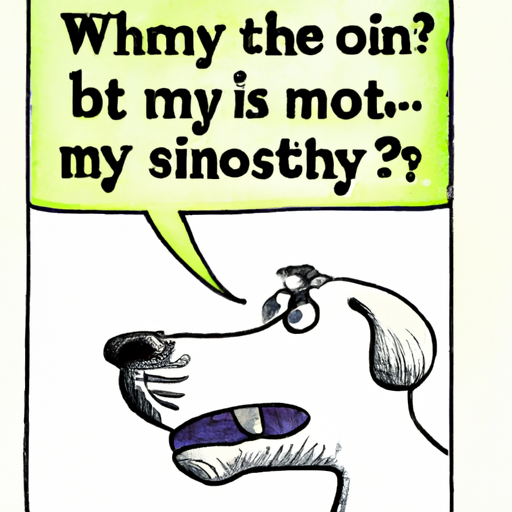As a devoted pet parent, you may have observed your dog drooling excessively and wondered, “why is my dog’s mouth watering?“. While salivation is a normal physiological response in dogs, excessive drooling or hypersalivation can be a sign of underlying health issues. This comprehensive guide will explore why your dog’s mouth might be watering more than usual, what you can do to help, and when to seek veterinary attention.
Table of Contents
1. Normal vs Abnormal Drooling
2. Common Causes of Mouth Watering
3. What To Do If Your Dog’s Mouth Is Watering
4. When To Consult a Vet
5. FAQs
Key Takeaways
- Salivation is normal in dogs, but excessive drooling can indicate health problems.
- Causes of excessive drooling range from oral health issues to heatstroke.
- Home remedies can help, but it’s important to consult a vet if symptoms persist.
- Regular dental check-ups and maintaining a clean and healthy environment can prevent excessive drooling.
Normal vs Abnormal Drooling
Salivation is a natural process in dogs, essential for digestion and oral health. However, if you notice your pet drooling excessively or if the salivation is coupled with other symptoms such as loss of appetite or lethargy, it might be time to investigate.
Some breeds like the Saint Bernard and Mastiff are known as ‘dribblers’ due to their loose, droopy lips. However, if your dog doesn’t belong to these breeds and suddenly starts drooling a lot, this could indicate an issue.
Common Causes of Mouth Watering
There are several reasons why your dog’s mouth could be watering excessively. Let’s take a look at some of the most common causes:
Oral and Dental Problems
Issues such as periodontal disease, tooth decay, or oral injuries can lead to excessive drooling. Regular dental check-ups can help prevent these issues. One Top Dog has an excellent article on the importance of dental hygiene for dogs here.
Heatstroke
Dogs can get heatstroke if they’re exposed to high temperatures for extended periods, leading to excessive panting and salivation. Always ensure your dog has a cool, shady place to rest and plenty of fresh water.
Toxin Ingestion
If your dog ingests a toxic substance, excessive drooling can be one of the first symptoms. Common toxins include certain plants, chemicals, and human foods such as chocolate and grapes.
Gastrointestinal Issues
Problems with the digestive tract, including gastritis and gastrointestinal obstruction, can cause hypersalivation. This article from One Top Dog provides more information on common digestive problems in dogs.
Nausea or Motion Sickness
Just like humans, dogs can also experience motion sickness, leading to excessive drooling.
What To Do If Your Dog’s Mouth Is Watering
If you notice your dog drooling excessively, don’t panic. Here are some steps you can take:
- Check Their Mouth: Look for any lodged food, foreign objects, or signs of dental issues.
- Keep Them Cool: If it’s hot, help your dog cool off in a shady spot or with a cool, wet towel.
- Remove any Potential Toxins: Make sure there are no toxic foods, plants, or chemicals within reach of your dog.
- Consult a Vet: If the drooling persists or if other symptoms are present, consult a vet as soon as possible.
Take a look at this guide by One Top Dog for more information on first aid for dogs.
When To Consult a Vet
While some drooling is normal, it’s crucial to seek veterinary advice if your dog’s salivation is persistent, sudden, or coupled with other symptoms like vomiting, difficulty eating, or changes in behavior. This could indicate a more serious issue that requires immediate attention.
FAQs
Q: Why is my dog suddenly drooling excessively?
A: Sudden excessive drooling could be due to several reasons such as oral injuries, toxin ingestion, or gastrointestinal issues. It’s best to consult a vet if this occurs.
Q: Can certain foods cause my dog to drool more?
A: Yes, some foods can cause dogs to drool more. Many dogs salivate more when they’re anticipating a meal, especially if it’s something they particularly enjoy.
Q: How can I prevent my dog from drooling excessively?
A: Regular dental check-ups, keeping a clean environment, and avoiding exposure to heat can help prevent excessive drooling.
Q: What breeds are more prone to drooling?
A: Breeds with loose, droopy lips like Mastiffs, Saint Bernards, and Bulldogs are more prone to drooling.
In conclusion, while some amount of drooling is normal for dogs, excessive salivation may be a cause for concern. By understanding the potential causes and knowing when to seek professional help, you can ensure your furry friend stays healthy and happy.



